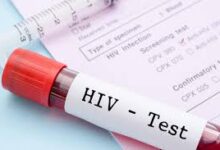Journalists calls for eliminating deadly industrially produced transfatty acids

In a joint statement today, representatives from leading media organizations, civil society, and public health advocates urged the government to take immediate policy measures to eliminate industrially produced trans fatty acids (iTFAs) from all sources of the food supply chain in Pakistan. They stressed that iTFAs in food are contributing to preventable deaths daily, and aligning with WHO-recommended best practices is critical for saving lives. The call was made during a media advocacy workshop hosted by the Centre for Peace and Development Initiatives (CPDI) at a local hotel in Lahore.
“Cardiovascular diseases, diabetes, and stroke are among the leading causes of death in Pakistan. Every day of delay in adopting best-practice policies to eliminate iTFAs from our food supply means more lives are lost to this deadly substance,” said Mukhtar Ahmed Ali, Executive Director of CPDI. He further emphasized that Pakistan is one of the highest consumers of iTFAs in the region due to the absence of a comprehensive regulatory framework, unlike neighboring countries.
Partially Hydrogenated Oils (PHOs), the primary source of iTFAs, are commonly used in processed foods. “A unified regulation limiting iTFAs to no more than 2 percent of total fats in all dietary sources, along with a ban on PHOs, would be a strong step toward addressing this health crisis,” stated Munawar Hussain, Country Lead at the Global Health Advocacy Incubator.
Recent studies and market analyses highlight the urgency of the situation. Processed foods, including vanaspati ghee, tea whiteners, street foods, fried items, bakery products, and ultra-processed foods, have been identified as major sources of iTFAs in Pakistan’s food supply. Dr. Maidah Hussain, International Public Health Practitioner and Instructor at Sheikh Zayed Hospital Lahore, added, “Research shows these foods are significantly contributing to the alarming rates of non-communicable diseases in Pakistan.”
The workshop attracted a large gathering of leading journalists from print, electronic, and social media. During the session, discussions covered Pakistan’s alarming health statistics, key gaps in food-related policies, and successful regulatory models from regional and international contexts. Media representatives voiced their concern over the rising rates of diabetes and cardiovascular diseases and emphasized the need for urgent government action.
Journalists urged the government to declare a public health emergency and implement decisive policy changes. Key recommendations included limiting iTFAs from all dietary sources, banning PHOs, enacting front-of-pack nutrition labeling and warning signs on ultra-processed foods, regulating food marketing, and removing unhealthy food items from public institutions, particularly schools.






